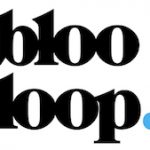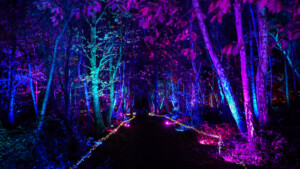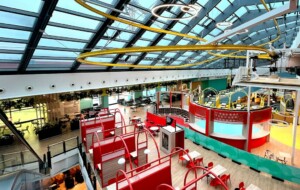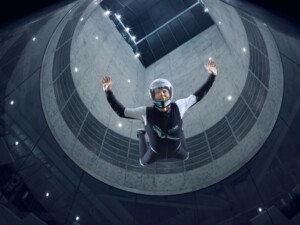You have just sixty minutes to escape from a locked room and the only tool you have is your brain.
Escape rooms, familiar to online gamers, are swiftly gaining fans in their real-life incarnation with rooms springing up across the globe.
Players work together to find a way out through code-breaking, puzzles, tasks and challenges.
With low start-up costs and a relatively high hourly rate, the new craze is a potential money-spinner, attracting puzzle-loving players of both sexes and all ages.

To find out more, Blooloop spoke to two leading escape room operators: Samrien Hussain, Owner of Tick Tock Unlock in the North West of the UK; and Kimberly Shepherd, Marketing and Events Director at Escapology in Orlando.
Samrien Hussain launched Tick Tock Unlock in Leeds in May 2014 and within six months it was the No.1 attraction in Yorkshire on TripAdvisor.

Tick Tock Unlock games are based on hardcore brain teasers and puzzles, with a deliberate lack of technology, allowing groups to communicate and work together to escape the room.
“I did a lot of research into how I could set it up, and what we would need, ” says Hussain. “The Bradford Kickstart Programme was a great start for us because they helped with the business plan, financial planning and marketing, which gave me a guideline of how we could work”.
“The plan was to do a pilot for 6 months as a concept to see if it would work in Leeds. We had such great reviews and feedback from customers, we actually won an Achievement Award from the Bradford Kickstart Programme for our success.”
Word of Mouth Marketing
So, how did Hussain reach out to her potential audience?
“We initially started selling through Groupon for exposure to get the word out on who we were, ” she says. “Since then we have not spent any money on marketing – it all comes through word of mouth and sites such as TripAdvisor.
“We opened in Leeds whilst the Tour de France was coming through Yorkshire, so we had a lot of tourists and our exposure was really spreading. We hit the number one attraction in Yorkshire on TripAdvisor within the first six months which was quite an achievement at the time”.
 Since then, the company has opened three more venues in Manchester, Liverpool, and Glasgow. The original blueprint game is at all locations, however they have expanded to include two more games, including a Zombie-themed room that can incorporate a live actor for a small surcharge.
Since then, the company has opened three more venues in Manchester, Liverpool, and Glasgow. The original blueprint game is at all locations, however they have expanded to include two more games, including a Zombie-themed room that can incorporate a live actor for a small surcharge.
“At the time, we weren’t too sure if the Zombie would work as our puzzles are demanding brain teasers. We wondered if a live actor would put customers off concentrating, but it has surprised us. The customers really enjoy interacting with the live actor, adding another element to the room.”
Success in the North West
“There was nothing like this up North, and especially in Leeds, which is such a developing city with so much going on.
“At Tick Tock Unlock, the youngest player we’ve had is a 6 year old and the oldest was a 91 year old – it was quite rewarding to see different generations come together, work together and talking to each other!”
The game caters for 3-6 players at a time, each paying £14-£16. With opening hours typically 9am-9pm, seven days a week, escape rooms can be lucrative for their owners. The relatively high hourly cost compared to traditional attractions hasn’t deterred customers. They see it as part of a day out that might include multiple activities in the city centre.
“An escape room really works because it is for everyone: family, friends, corporate, there is no-one that can be excluded, ” says Hussain. “It is all about getting people off technology, socialising, and getting back to the basics, rather than being locked in a room playing on their PSP, phones or iPads”.
Escaping in Orlando
Kimberly Shepherd from Escapology in Orlando, agrees: “Escape rooms are so popular because you use your brain. A lot of the time now you go through other attractions such as a museum, and you can passively read about history; but these are games that include your mind, your critical and analytical skills, and teamwork. It is real life and not on a screen.”
Escapology is owned by brothers Paul and Simon Davison, who launched it in Orlando in December 2014. Initially offering four games, the attraction has grown to include seven and is now considered one of the must-do attractions in one of the most competitive markets in the world. The company has also created a successful franchising scheme with seven planned new locations domestically in the US and internationally, the latest of which opens in Ecuador around 1st March 2016.
For these franchises, customisation is key.
“As more franchises open, we will be coming out with more and more games, ” says Shepherd. “In the Ecuador franchise, we are constructing it to be a little bit more localised. We can take a game and make it customised to the place that they are playing in.
“We have a good-sized franchise team that will be supporting the new locations, training the manager so they know what to expect and to maintain brand management.”
Escapology has a team of twelve people who produce new games quarterly to gain repeat business and offer the best products to their customers.
“Once you have played a game you really can’t play it again but it makes us as a company strive to improve. Each game we produce will be better and better. We conduct surveys at the end of the game to see what the people want. Our game Budapest Express came about because lots of people wanted a greater challenge and it has become one of our most difficult games.
“It is the interesting part and one of the more difficult parts of our job, having to keep everything fresh and innovative.

Hospitality focused
Blooloop had the opportunity to visit Escapology back in November during IAAPA, where we tested one of these rooms, Antidote, out for ourselves and it did not disappoint!
“Escapology is a more hospitality-focused escape game. We take customer service to the next level. We want you to learn how to escape and how to work these rooms. We want you to sit down afterwards, talk about it and really embrace what you just went through and how you could do it better next time, and that’s most important to why people come back again.”
The growing popularity of the sector is clear from the numbers. According to the Escape Room Directory, there are currently games operating in 63 countries, 616 cities, 1381 sites, and 3159 rooms.
“I think it is a good thing that there are other escape games, ” says Hussain. “It is making people more aware of the concept. It is similar to online gaming, you try one game, you want to try another and it becomes addictive.
“The more companies there are out there with different experiences, the more people will want to try it!”.
















